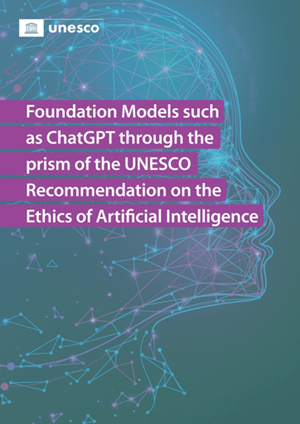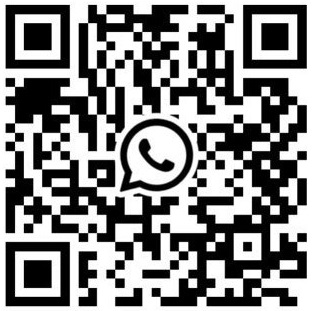
In response to growing political, public and industry concern over the rapid proliferation of artificial intelligence (AI) foundation models and calls for regulation, UNESCO is publishing a policy paper demonstrating how the UNESCO Recommendation on the Ethics of AI can help identify and clarify key ethical concerns related to AI systems, guiding policy responses. The paper suggests a procedural framework to address and mitigate risks that may arise with their use across the AI project life cycle.
As AI continues to open up numerous of opportunities to transform and revolutionize how we address global challenges and move through the world, excitement over AI systems has been tempered by growing concerns over its potential harms and ethical issues that may arise.
Recently, following the G7 Summit in Hiroshima, Japan, G7 leaders called urgently for AI “guardrails” to be put into place as the technology continues to be developed. Before this, on 22 March 2023, thousands of tech leaders and researchers also signed an Open Letter on AI voicing worry over the potential for harm in a future scenario where Artificial General Intelligence becomes a reality, calling for a 6-month pause in the development of powerful AI systems. Since then, numerous similar moves have been made by experts and leading figures worldwide. More recently, in May, a group of doctors and public health experts from around the world called for a halt in AI research until the technology can be properly regulated in BMJ Global Health, an open-access health journal, highlighting threats associated with the misuse of AI.
Some of the concerns that have been raised by world leaders and experts include the use of AI by malicious parties, with the number of incidents involving the misuse of AI, such as deepfakes, increasing by 26 times since 2012 according to the AIAAIC, the amplification and exacerbation of existing biases, as well as the propensity of AI to facilitate the spread of disinformation and misinformation.
In response to these growing concerns, UNESCO has published a policy paper containing analyses of burgeoning “experimental” AI tools such as ChatGPT which have taken the world by storm through the lens of the UNESCO Recommendation on the Ethics of AI. Crucially, the paper is grounded in ethical principles, and highlights the known effects of such models in relation to the principles and policy areas of the Recommendation.
Responding to recent calls by the G7 leaders for regulation, the policy paper suggests how the Recommendation can act as a guide for stakeholders in addressing various concerns, proposing concrete actions and a procedural framework for designing, developing, deploying and procuring AI systems ethically. This includes facilitating the mitigation and redressal of harms that arise from AI systems and conducting ex-ante assessments, ultimately allowing stakeholders to leverage and promote the social benefits of such platforms.
UNESCO is well-prepared to support countries in this through an extensive toolkit of resources that was produced in tandem with the Recommendation on the Ethics of AI. This includes tools such as the Readiness Assessment Methodology and Ethical Impact Assessment, and several expert networks (AI Experts without Borders and the Women4EthicalAI Platform). The organization is also working closely with many other fora, including the European Union and the G20, to facilitate greater oversight of AI and with the aim of working toward the establishment of a model governance framework.
In a time of heightened anxiety over the pace of AI innovation outstripping regulation, UNESCO’s policy paper is a timely document that responds to the latest developments in the industry and highlights how the Recommendation on the Ethics of AI is an existing useful resource which can guide decision-makers toward swift and robust regulation.

ArtDependence Magazine is an international magazine covering all spheres of contemporary art, as well as modern and classical art.
ArtDependence features the latest art news, highlighting interviews with today’s most influential artists, galleries, curators, collectors, fair directors and individuals at the axis of the arts.
The magazine also covers series of articles and reviews on critical art events, new publications and other foremost happenings in the art world.
If you would like to submit events or editorial content to ArtDependence Magazine, please feel free to reach the magazine via the contact page.